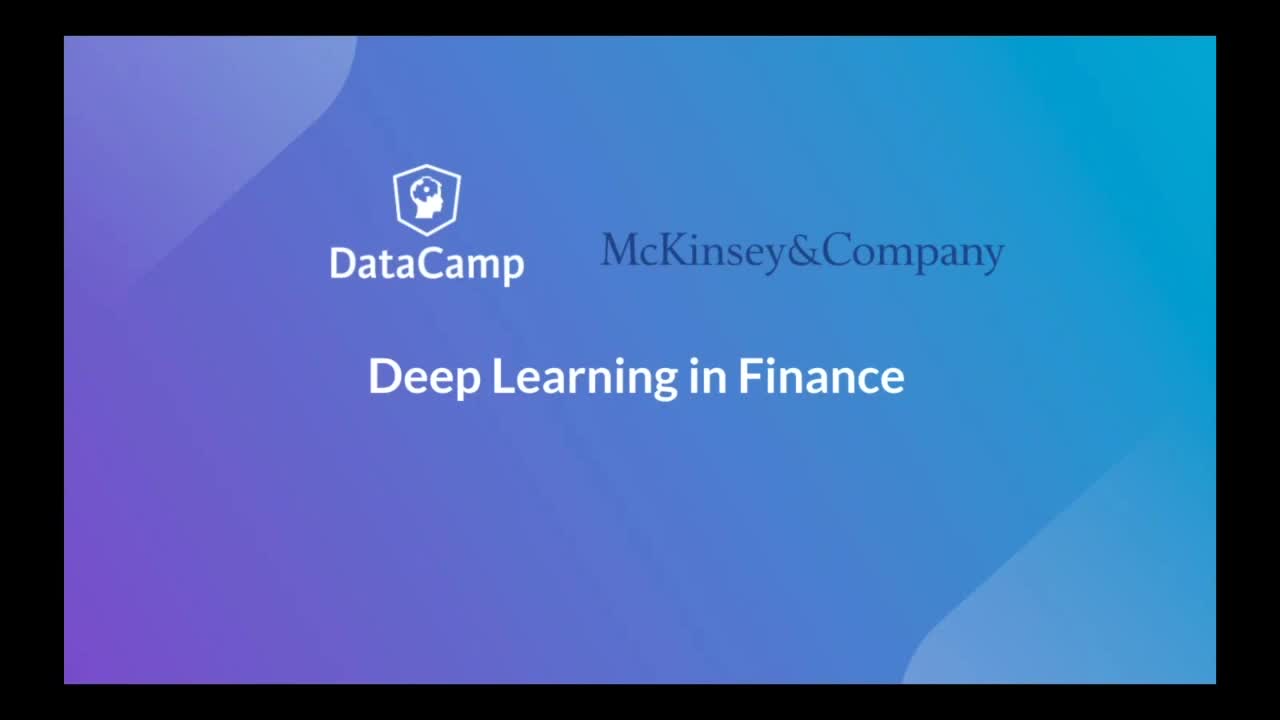Skip to main content





Related
The Definitive Guide to Machine Learning for Business Leaders
Craft a 21st-century data strategy to optimize business outcomes.white paper
Digital Transformation in Finance: Upskilling for a Data-Driven Age
Tackle the unique digital transformation challenges for the finance industry.webinar
Machine Learning for Investment Finance
Discover the common use cases for machine learning in investment finance.webinar
Artificial Intelligence in Finance: An Introduction in Python
Learn how artificial intelligence is taking over the finance industry.webinar
What Managers Need To Know About Machine Learning
Get real-world examples of how machine learning applies to business problems.webinar
Webinar | AI, Finance, and Algorithmic Trading
Investigate how AI, ML, and data science impact finance and algorithmic trading.Join 5000+ companies and 80% of the Fortune 1000 who use DataCamp to upskill their teams.
Loved by thousands of companies

